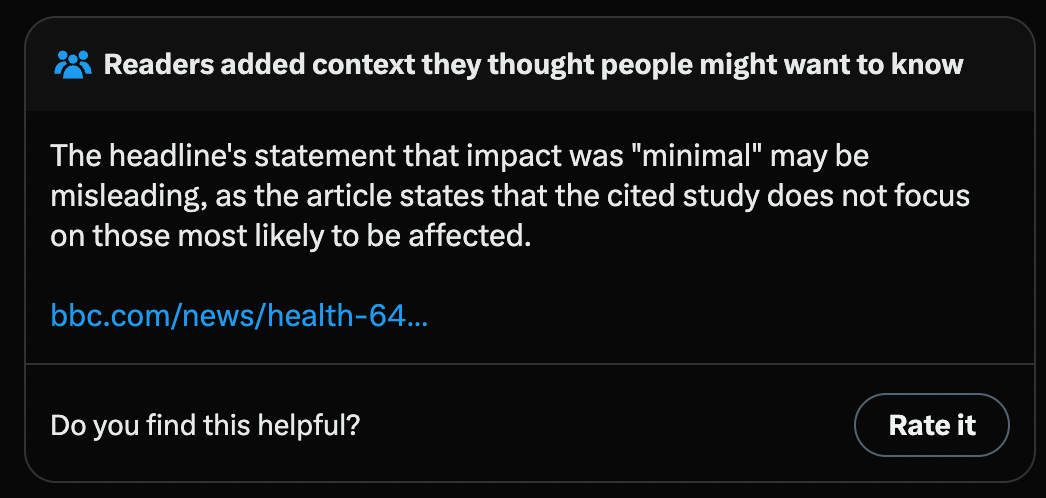
Have you heard? According to some very smart people who did a study (of other studies), the COVID-19 pandemic didn’t actually warp everyone’s mental health as much as we thought it did!
If you’re rolling your eyes, you’re not alone.
Published earlier this month in the British Medical Journal, the meta-analysis looked at 137 studies from (and this is important) mostly-wealthy European and Asian countries in an apparent attempt to quantify the many, many academic and anecdotal findings which suggest that the pandemic absolutely ruined everyones’ minds.
What these researchers out of various Canadian academic institutions found instead was evidence suggesting maybe the pandemic and its lockdowns weren’t so bad for the mental health of those lucky bastards after all.
While the domestic income caveat should be the main criteria for any statements qualifying these research findings, social shares of the paper — which, we should note, does include in-journal links to two editorials, one agreeing with the findings and one critical of them — included no context or qualification at all, because social media is where nuance goes to die.
Unsurprisingly, this controversial paper is making waves among both the still-pissed-off COVID denialist set and equally-peeved abundance-of-precautionists — but it’s also irking those who find themselves between these two extremes, too.
As BuzzFeed News expertly outlined, there are lots and lots of relatively normal people who’ve taken umbrage to the headlines and tweets about the study suggesting that mental health outcomes during the first years of the pandemic weren’t as big of a problem “among general population studies” as they initially seemed. Even though, again, the meta-analysis writers’ admitted that a whopping 77 percent of the countries they looked at were high-income.
Indeed, the skewed headlines were so bad that Elon Musk’s Twitter slapped a reader-generated note on one of the more popular BBC posts caveating the entire thing:

As ever, people wouldn’t be on Twitter if it weren’t at least a little fun, and to that end, it yielded plenty of anecdotal (and hilarious) evidence about the wild shit people did during the height of lockdown as their minds unspooled like yarn. For example: Getting “divorced on Zoom,” creating an itemized spreadsheet about Netflix’s soul-crushing adult cartoon “Bojack Horseman,” and writing a letter to the infamous “Tiger King” villain Joe Exotic in prison. To be clear: There’s also, um, an abundance of data that utterly disproves the study (and the news coverage of it).
Take, for example, a different meta-analysis published in The Lancet right around the time the BMJ one was making the rounds which found, horrifyingly, that there was an upward trend of children going to the hospital due to suicidal ideation in 18 countries. If that’s not evidence of a mental health crisis, good luck finding any, ever.
While it’s all fine and good that people in well-to-do countries supposedly experienced more mental resilience during those first hellish pandemic years, using this meta-analysis to make any sweeping suggestions about something as complex (and with such long-term implications) as mental health amid a global, paradigm-shifting event? Incidentally enough: Pretty crazymaking.
More on meta-analyses: Dicks Are Getting Longer and Scientists Don’t Know Why